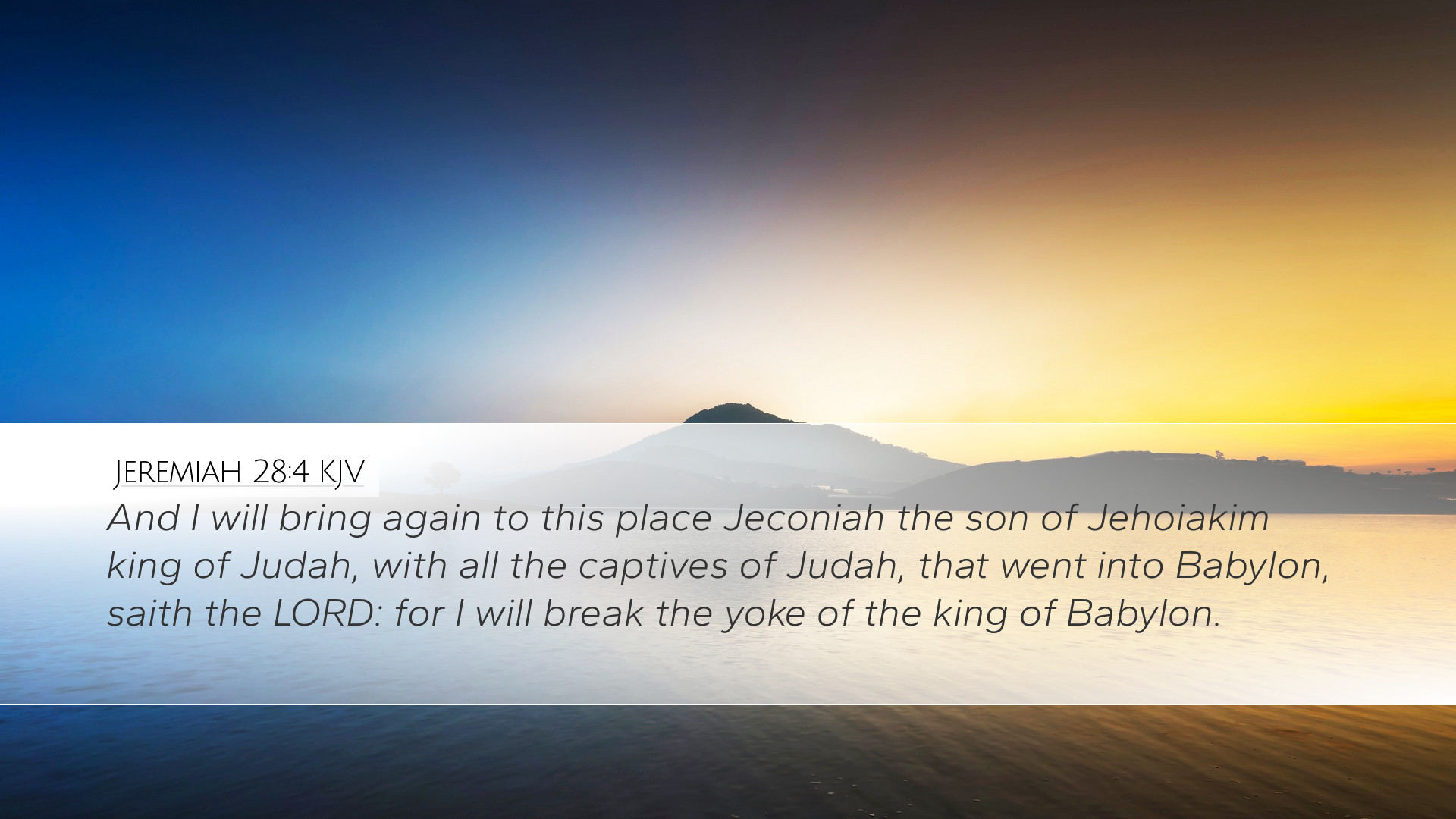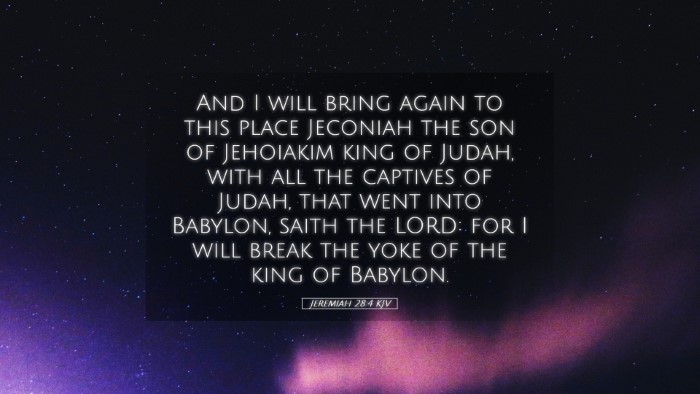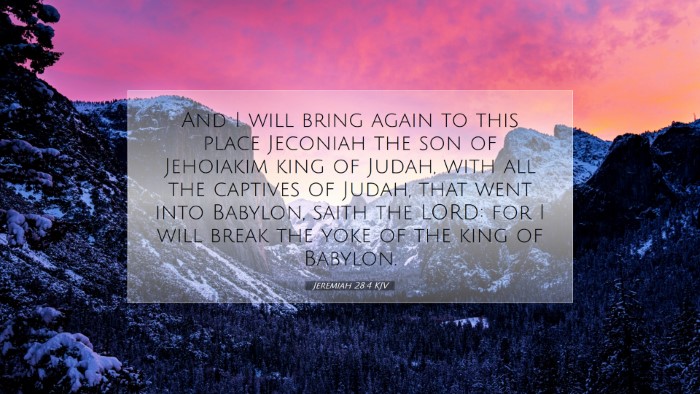Commentary on Jeremiah 28:4
Jeremiah 28:4 states:
“And I will bring again the captivity of Judah, and the captivity of Israel, saith the LORD; and I will cause them to return to the land that I gave to their fathers, and they shall possess it.”
Context of the Verse
This verse is set against the backdrop of the prophetic ministry of Jeremiah, who was addressing the nation of Judah during a time of impending doom brought about by Babylonian conquest. The significance of this promise of restoration from captivity is profound, as it not only outlines God’s plan for His people but also showcases His unwavering faithfulness despite their disobedience.
Insights from Commentaries
Matthew Henry’s Commentary
Matthew Henry emphasizes the comforting nature of God's promise to restore the captivity of both Judah and Israel. He notes:
- The Assurance of Restoration: Henry points out that God's promises often appear amidst gloom and despair, reminding the faithful that God can turn mourning into joy. This promise indicates that the Lord is a God of mercy, ready to pardon and restore those who have strayed.
- The Specificity of the Promised Land: He highlights the significance of referencing “the land that I gave to their fathers.” This connects the present generation with their heritage, reinforcing God’s covenant with Israel and signifying that their rightful place was not lost, but merely delayed.
- The Nature of God’s Faithfulness: Henry succinctly notes God’s commitment as “I WILL...” which brings reassurance that the restoration is not based on the people’s worthiness but on God's promises and faithfulness.
Albert Barnes’ Notes
Albert Barnes provides an analytical perspective on this prophetic declaration, emphasizing the dual nature of the prophecy concerning Israel and Judah:
- Historical Context: Barnes explains that this verse not only forecasts the end of the Babylonian captivity but also serves as a testament to the unity of the once divided kingdoms of Judah and Israel. It reflects a future hope of reunification under God’s sovereign will.
- Divine Initiative: Barnes stresses that “saith the LORD” underlines that these words are not merely hopeful sentiments but are decreed by God Himself, assuring believers that the fulfillment of this promise is certain.
- Ultimate Fulfillment: He also highlights the eschatological dimension of this promise, indicating that while it addressed an immediate context, its ultimate fulfillment points to the broader restoration found in Christ, outside of a geographical return.
Adam Clarke’s Commentary
Adam Clarke offers a theological exploration of this verse, presenting several critical reflections:
- God’s Historical Sovereignty: Clarke observes that God’s providential hand guided the history of Israel and Judah. The promise to restore them highlights God's active engagement in their national identity and future.
- Spiritual Reflection: He urges readers to consider this verse as reflective of God’s desire for a restored relationship with His people, accentuating the spiritual implications of returning to obedience and faithfulness post-exile.
- Covenantal Theology: Clarke asserts that this promise is deeply rooted in God’s covenant with Abraham, Isaac, and Jacob, reinforcing that God’s promises are steadfast and transcend generations.
Theological Reflections
This verse encapsulates several key theological themes relevant to ministers, students, and scholars:
- Hope in Despair: The context teaches that even in times of greatest betrayal and hopelessness, God’s promises endure. This is crucial for pastoral teaching, offering a foundation for hope in congregational settings.
- The Nature of God’s Promises: The assurance found in this promise reinforces the attributes of God—His immutability and faithfulness. Believers are reminded that God does not change, and His word is reliable.
- The Importance of Repentance and Restoration: This text encourages theological reflection on how God calls His people back despite their failures. It illustrates the need for repentance and the joy of restoration, resonating with New Testament themes of reconciliation through Christ.
Pastoral Applications
For pastors and church leaders, Jeremiah 28:4 serves as a rich source for sermons and teachings:
- Encouragement for the Broken: Use this verse to minister to those feeling lost or in captivity, drawing parallels to modern-day struggles with sin, addiction, and personal crises, and illustrating that restoration is always possible through God.
- Inviting Unity: The promise of restoring Israel and Judah can be a metaphor for calling the church to unity, encouraging reconciliation among divided communities.
- Highlighting God’s Faithfulness: Focus on God’s promises as a source of comfort and strength, inspiring congregants to trust in His faithfulness irrespective of their circumstances.


